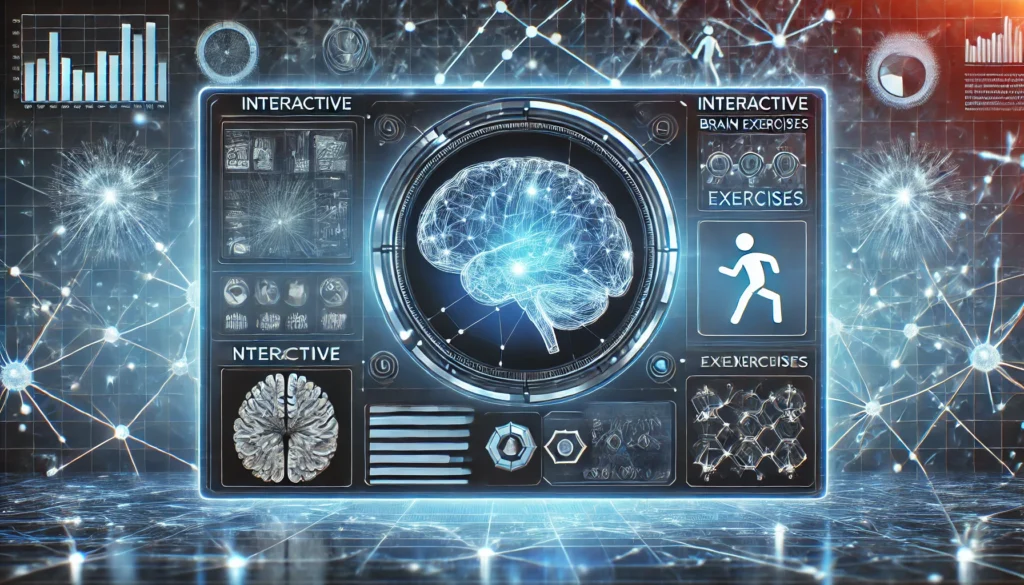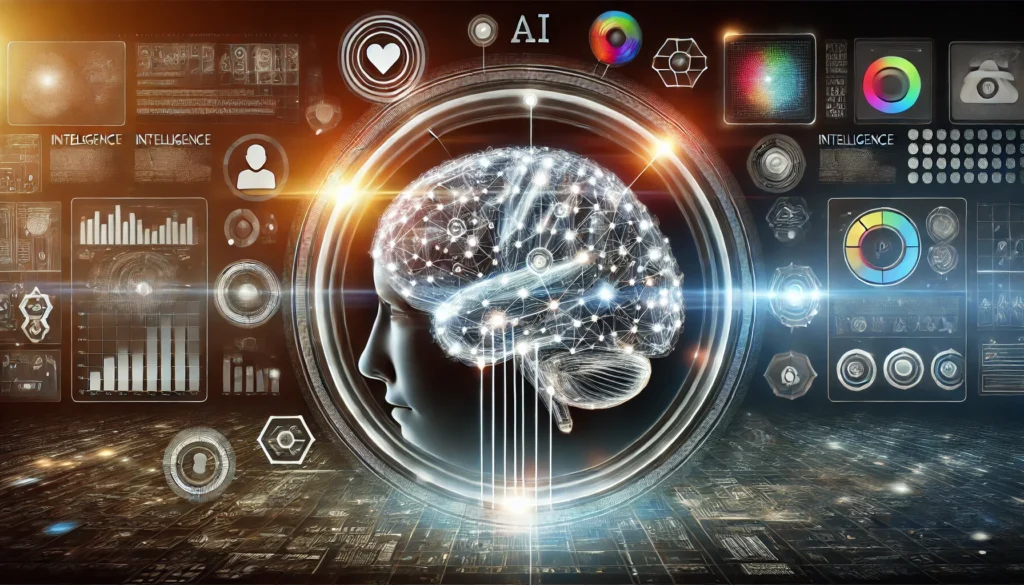In the modern digital age, where information is at our fingertips and distractions are abundant, maintaining optimal brain health has become a priority for many individuals. The quest for enhanced cognitive function and mental acuity has led to the creation of numerous apps designed to boost brain health. But with so many options available, how do you determine which apps are truly effective?
In this article, we delve into the world of brain training apps, exploring their efficacy, presenting a curated list of the top apps for enhancing memory and cognitive skills, and examining the science behind brain training.
You may also like: Boost Your Mind: Top Brain Games
The Science Behind Brain Training
Brain training apps have gained popularity as tools aimed at improving cognitive functions, such as memory, attention, and problem-solving skills. But do brain training apps work as advertised? The scientific community has been divided on this issue.
Historical Context and Current Trends
Brain training is not a new concept. Historically, cognitive exercises have been used to enhance mental faculties. Ancient civilizations employed puzzles and games to sharpen their minds. These practices were often integrated into daily life as a means of survival and cultural tradition. Fast forward to the present, and we see a technological evolution of these practices in the form of digital apps.
Today, brain training apps utilize gamification techniques to engage users, capitalizing on current trends in neuroscience and psychology. Gamification involves using game design elements in non-game contexts, making these apps both challenging and entertaining. This approach encourages consistent use by rewarding progress and providing a sense of achievement.
In addition to gamification, there is a growing trend towards personalizing the user experience. Apps are increasingly using data analytics to tailor exercises based on individual performance, ensuring that each session is uniquely challenging and beneficial.
The Efficacy of Brain Training Apps
Recent studies have shown mixed results regarding the efficacy of brain training apps. While some research suggests that these apps can lead to improvements in specific cognitive areas, others argue that the benefits are limited to the tasks practiced within the app and do not generalize to everyday cognitive function.
For instance, a comprehensive study published in “Psychological Science” indicated that brain training might lead to short-term improvements in task-specific skills, but these gains do not necessarily translate to overall cognitive enhancement. This finding has sparked debate in the scientific community about the long-term benefits of brain training.
Other studies have highlighted the placebo effect associated with brain training apps. Users who believe in the efficacy of these apps may report cognitive improvements due to heightened engagement and motivation rather than the app’s inherent capabilities.
Despite the debate, it is generally agreed that brain training apps can serve as effective tools when combined with other cognitive and physical activities. Their role in promoting mental engagement and discipline should not be underestimated.

The Role of Neuroscience and Psychology
The development of brain training apps is heavily informed by advances in neuroscience and psychology. Understanding how the brain processes information has led to more effective training techniques. For example, apps often incorporate exercises that stimulate neuroplasticity, the brain’s ability to reorganize itself by forming new neural connections.
Psychologists contribute by designing exercises that are not only effective but also engaging and motivational. The psychological aspect ensures that users remain committed to their training, which is crucial for achieving cognitive benefits.
Moreover, some apps use biofeedback and neurofeedback to provide real-time insights into the user’s mental state. These technologies can help users understand how their brains respond to different stimuli, enhancing the personalization of the training experience.
Top Apps for Brain Health
Despite the ongoing debate, several apps have been recognized for their innovative approaches and potential benefits to brain health. Here, we explore some of the best apps for brain health:
1. Lumosity
Lumosity is one of the most well-known brain training apps, offering a variety of games that target different cognitive skills, including memory, attention, and problem-solving. The app adapts to the user’s performance, providing personalized challenges to maximize cognitive gains.
The app is designed with input from neuroscientists, ensuring that its games are grounded in scientific research. Lumosity uses a subscription model, offering users a variety of games that change daily to keep the brain engaged.
Lumosity also provides users with detailed feedback on their performance, allowing them to track their progress over time. This feature is particularly beneficial for those who are serious about improving their cognitive abilities.
The app’s accessibility across multiple platforms, including mobile and desktop, makes it easy for users to integrate brain training into their daily routines, whether at home or on the go.
2. Elevate
Elevate focuses on improving communication and analytical skills through engaging, interactive games. The app offers a tailored training program that adjusts to the user’s learning pace, aiming to enhance productivity and self-confidence.
Each game in Elevate is designed to improve specific cognitive skills, such as reading comprehension, math, and writing. The app’s emphasis on practical skills makes it a popular choice for professionals looking to enhance their workplace performance.
Elevate provides personalized daily workouts that adapt over time to keep the challenges fresh and engaging. This adaptability ensures that users remain motivated and continue to see improvement.
The app’s sleek design and intuitive interface make it appealing to users of all ages, contributing to its widespread popularity and positive user reviews.
3. Peak
Peak combines cognitive games with insights from neuroscience and education to deliver a comprehensive brain training experience. The app features daily workouts that challenge memory, language, and mental agility, supported by data-driven progress tracking.
Peak’s games are developed in collaboration with academic researchers, ensuring that they are both fun and scientifically sound. The app uses a freemium model, allowing users to access a selection of games for free, with the option to unlock more content through a subscription.
The app’s “Coach” feature provides personalized insights and recommendations, helping users focus on their cognitive goals. This level of personalization sets Peak apart from many other brain training apps.
Peak also offers a competitive aspect, allowing users to compare their scores with friends and other users worldwide. This social component adds an extra layer of motivation for those who thrive on competition.
4. BrainHQ
Developed by neuroscientists, BrainHQ offers exercises designed to improve brain function and overall cognitive health. The app provides personalized training sessions based on user performance, emphasizing real-world applications of cognitive skills.
BrainHQ’s exercises are backed by extensive scientific research, with studies showing that they can improve memory, attention, and even processing speed. The app’s exercises are designed to be short and intense, maximizing cognitive benefits in just a few minutes a day.
Users appreciate BrainHQ’s focus on real-world applications, such as improving driving skills or enhancing memory recall in social situations. This practical approach makes the app particularly appealing to older adults looking to maintain their cognitive health.
BrainHQ offers detailed performance tracking, allowing users to see how their cognitive skills improve over time. This feedback is crucial for maintaining motivation and ensuring continued use of the app.
5. CogniFit
CogniFit offers a suite of brain training games aimed at enhancing cognitive abilities such as memory, concentration, and reasoning. The app provides detailed cognitive assessments to help users understand their strengths and weaknesses.
CogniFit’s personalized training programs are based on initial assessments, ensuring that users focus on areas where they can achieve the most significant improvement. This targeted approach is highly effective for users with specific cognitive goals.
The app’s user-friendly interface and engaging graphics make it accessible to users of all ages, from children to older adults. This broad appeal is one of CogniFit’s key strengths.
CogniFit also offers a unique feature that allows users to track their cognitive development over time, providing valuable insights into how their brain health is progressing. This tracking capability is particularly beneficial for those seeking to prevent cognitive decline.

Practical Advice for Using Brain Training Apps
While brain training apps can be beneficial, their effectiveness largely depends on the user’s approach. Here are some tips for maximizing the benefits of these apps:
Consistency is Key
Regular practice is essential for reaping the cognitive benefits of brain training apps. Set aside dedicated time each day to engage with the app’s exercises, making it a part of your routine.
It’s important to treat brain training like any other form of exercise—consistency leads to improvement. Start with a manageable time commitment, such as 10-15 minutes a day, and gradually increase as you build the habit.
Incorporating brain training into your daily routine can be as simple as setting a reminder on your phone or choosing a specific time each day to complete your exercises. Consistency will help solidify new neural pathways, leading to more substantial cognitive gains.
Remember that the brain thrives on variety and challenge, so regularly update your training regimen to keep it engaging and effective.
Diversify Your Activities
To enhance overall cognitive function, use a variety of exercises that target different cognitive skills. This diversification prevents your brain from becoming too accustomed to a single type of task.
Engaging in a range of activities ensures that all areas of the brain are stimulated. For example, combine memory games with puzzles, language exercises, and problem-solving tasks to create a balanced cognitive workout.
Switching between different types of exercises can also prevent boredom and enhance motivation. This variety keeps your brain alert and responsive, promoting better overall mental health.
Moreover, incorporating different types of activities can help improve cognitive flexibility, the ability to adapt to new situations and solve problems creatively.
Combine with Other Cognitive Activities
For holistic brain health, complement app-based training with other cognitive activities such as reading, puzzles, and physical exercise. A well-rounded approach fosters a healthier, more resilient brain.
Reading diverse materials, such as novels, scientific articles, or historical texts, can enhance vocabulary and comprehension skills. Meanwhile, engaging in puzzles like crosswords or Sudoku can improve problem-solving abilities and concentration.
Physical exercise is also vital for brain health, as it increases blood flow to the brain and promotes the release of neurotrophic factors, which support neuronal growth and function. Consider integrating activities like walking, yoga, or swimming into your routine.
Social interactions are another critical component of cognitive health. Engaging in meaningful conversations, playing board games with friends, or participating in group activities can stimulate different cognitive skills and improve emotional well-being.
Future Implications and Considerations
As technology advances, the potential for brain training apps to evolve and become more effective grows. Future iterations may incorporate artificial intelligence to provide even more personalized training experiences and leverage virtual reality for immersive cognitive exercises.
Artificial intelligence can analyze user data in real-time, offering tailored recommendations and adjustments to training programs based on individual progress and preferences. This level of personalization could significantly enhance the effectiveness of brain training apps.
Virtual reality technology offers the potential for highly immersive cognitive exercises that engage multiple senses. These experiences could simulate real-world scenarios, providing users with practical skills that translate beyond the digital realm.
However, it’s essential to approach these tools with realistic expectations. While they offer potential cognitive benefits, they should not be viewed as a panacea for cognitive decline or mental health issues. Brain training apps are best used as part of a comprehensive approach to brain health, alongside other lifestyle factors such as a balanced diet, adequate sleep, and stress management.
Ethical considerations also arise with the use of advanced technologies in brain training. Developers must ensure user data privacy and implement safeguards to prevent over-reliance on digital solutions.

Conclusion
The quest for enhanced brain health in the digital age is both intriguing and challenging. While brain training apps offer an accessible means to engage in cognitive exercises, their efficacy varies, and they should be used as part of a broader strategy for maintaining mental acuity.
Whether you’re a health and wellness coach, a science journalist, or a biohacker, understanding the nuances of these tools can empower you to make informed decisions and guide others in their cognitive health journeys. Brain training apps represent just one piece of the puzzle in the complex landscape of cognitive health.
By weaving together historical insights, current trends, and future possibilities, we can appreciate the complexity and potential of brain training apps in our quest for a sharper, more resilient mind. As we continue to explore the capabilities of these digital tools, it’s crucial to remain open-minded and adaptable, embracing both technological advancements and traditional methods for optimal brain health.
Further Reading:
10 best apps to train your brain
Experiencing midlife brain fog? These apps can help
Discover what your mind can do
Important Note: The information contained in this article is for general informational purposes only, and should not be construed as health or medical advice, nor is it intended to diagnose, prevent, treat, or cure any disease or health condition. Before embarking on any diet, fitness regimen, or program of nutritional supplementation, it is advisable to consult your healthcare professional in order to determine its safety and probable efficacy in terms of your individual state of health.
Regarding Nutritional Supplements Or Other Non-Prescription Health Products: If any nutritional supplements or other non-prescription health products are mentioned in the foregoing article, any claims or statements made about them have not been evaluated by the U.S. Food and Drug Administration, and such nutritional supplements or other health products are not intended to diagnose, treat, cure, or prevent any disease.


